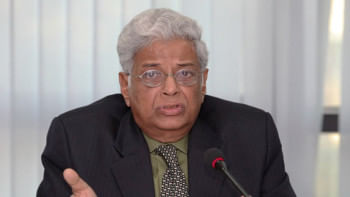Leave no one behind in Sudan

Amid uncertainty over the extension of a fragile 72-hour ceasefire – due to expire late on Thursday – in conflict-ridden Sudan, it is the safety of foreign nationals trapped in the country that has emerged as a major headache for all concerned. Even if the so-called truce between the military government and the rival paramilitary Rapid Support Forces (RSF) is extended for another 72 hours, following the initial approval given by the former late on Wednesday, it is unlikely to lead to an immediate improvement on the ground. This makes it extremely important that, whatever window of opportunity is opened in the event of an extension, countries including Bangladesh make the best use of it to evacuate their citizens.
According to an estimate, some 1,500 Bangladeshis, who mostly work in construction or domestic services, are presently in Sudan. It is not a labour-hiring country, so Bangladeshis go there mostly for an opportunity to move to other countries like Libya later. But with the scope of such migrations now diminished, many who could not move to other countries stayed back. We must acknowledge that the government of Bangladesh has been sincere if not decisive enough on the issue of their evacuation since fighting erupted in the country on April 15. After the state minister for foreign affairs announced initiatives to evacuate them on April 25 – when the ceasefire took hold – around 500 Bangladeshis reportedly registered, and we are told that they will be evacuated via Jeddah in Saudi Arabia early next month. While we would have appreciated it more if the government had intervened earlier or more strongly, like some other countries did, we hope that any casualty can be avoided before that time arrives.
The problem for Bangladesh came into focus after its embassy building in Sudan was hit by bullets on April 22, damaging the third-floor wall. Earlier, on April 15, the residence of Charge De Affaires Tareq Ahmed, which is close to the Khartoum International Airport, had machine gun bullets hitting and piercing through its windows. However, no one was hurt in either of the incidents. Since then, we have come across reports on how trapped Bangladeshis, along with other foreign nationals and the local population, have been struggling to find food, water, electricity, medicine and other basic essentials. Since the fighting began, at least 512 people have been killed in air raids and artillery attacks so far. Thousands have been wounded. The ceasefire has had little effect on this situation, which makes us worried about the outcome of any possible extension.
Still, there is no alternative to a ceasefire and a political solution to the crisis. We urge global leaders to make decisive interventions in Sudan so that lasting peace can be secured as soon as possible. Meanwhile, we hope that our government will make sure that all Bangladeshis who want to return to the country can do so without delay or any hassle on the way. Their safety is of utmost importance.


 For all latest news, follow The Daily Star's Google News channel.
For all latest news, follow The Daily Star's Google News channel. 








Comments